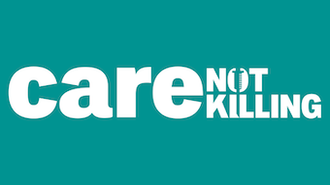Public want Labour to prioritise palliative care before assisted dying

Support for a Royal Commission on palliative and end of life care commands support amongst 7 out of 10 Brits finds a major new survey of more than 5,000 people.
Commissioned by the leading anti-assisted suicide group Care Not Killing, the survey found that while a comfortable majority of the public was initially in favour of changing the law, this support is conditional when respondents are provided with arguments against including about how the law has been changed in other countries
Only 11 per cent of the public are immune to any anti-assisted dying arguments - indicating fragility in public opinion on this issue. Presented with 10 arguments against legalising assisted suicide/dying, based largely on the factual experiences from other countries, support for assisted dying drops in every category, by between 17 and 49 percentage points.
The survey was commissioned by Care Not Killing and carried out by Focaldata. The survey first measured support/ opposition to assisted dying in the same way used by proponents of changing the law and found that 73 per cent 'supported' such a change. However, after being presented with 10 arguments against assisted dying, the proportion of 'supporters' who did not switch to oppose or say 'don't know' fell to just 11 per cent.
Beneath the surface, only six in 10 (60 per cent) of people could correctly define 'assisted dying' as "providing people who have less than six months to live months to live with lethal drugs to end their life". One in six (17 per cent) people wrongly thought assisted dying included hospice care, half (52 per cent) thought it included "life-prolonging treatment". The debate has clearly not been conducted long enough, or thoroughly enough for the public to understand the basic facts of the proposed change.
While half of those surveyed (51 per cent), thought doctors risked prosecution if they administer pain relief to reduce a patient's pain knowing that it is likely to shorten their life, seven in 10 (70 per cent) thought assisted dying was needed to avoid dying in pain and 15 per cent thought that hospices were "fully funded" by the NHS.
The survey found a clear majority - nearly six in 10 (58 per cent) - concerned that if the law was changed, it was "inevitable that some of the most vulnerable people in society, such as the elderly, people with disabilities or mental health conditions would feel pressured into an assisted death, with just a quarter (27 per cent) disagreeing.
Dr Gordon Macdonald, CEO of Care Not Killing, commented: "This major new poll blows apart the arguments so often advanced by advocates of state-assisted killing that the public backs changing the law. But this support is based on a superficial question that relies on the public's understandable lack of knowledge about what happens in the small number of countries that have legalised assisted suicide or euthanasia. When members of the public hear that some countries have extended laws on assisted dying to include children under 12; that some people have felt pressure to opt for assisted suicide or euthanasia because they feel they are a burden on loved ones and how in the UK a clear majority of palliative care doctors oppose changing the law, support drastically deteriorates.
A majority (56 per cent) also agreed that the current state of the NHS was likely to push some people into assisted dying if it were made legal. A further 57 per cent believe that, given the lower cost of assisted dying compared with palliative care, there would likely be pressure on the NHS to offer assisted dying were it to become legal. Moreover, fully two thirds, (66 per cent), agreed that Labour should prioritise sorting out palliative, social and end of life care before even thinking about assisted dying.
Interestingly, the public overwhelmingly backs calls made by several senior politicians, including Health Secretary Wes Streeting that the Government's focus should be on trying to fix the UK's broken palliative care system that sees one in four Brits who would benefit from palliative care unable to access it.
Asked if they agreed or disagreed with the statement, "Before parliament considers introducing assisted dying, there should be a Royal Commission to examine the future of palliative and end of life care," seven in 10 (70 per cent) agreed, with fewer than one in 7 (14 per cent), disagreeing.
The public are also highly sceptical about claims of 'stringent' safeguards around the proposed Kim Leadbeater Bill: around six in ten (59 per cent) agreed that it was "impossible to create safeguards that would always prevent people from being coerced into assisted dying", with 24 per cent disagreeing.
Dr Gordon Macdonald concluded: "This incredibly detailed and powerful study of more than 5,000 people demonstrates that changing the law is not only fraught with difficulties but does not enjoy public support, far from it. When presented with the facts the Great British public want parliamentarians to fix the NHS, properly funding palliative and social care, not introduce a dangerous and ideological policy that would pressure the vulnerable, the elderly and disabled people into ending their lives prematurely. The message could not be clearer, we need care, not killing."
LINKS
For more information see Care Not Killing: www.carenotkilling.org.uk/
If you would like to talk with someone about issues raised in this article, the Samaritans are available 24 hours a day. Call free on 116 123 or visit: www.samaritans.org


















